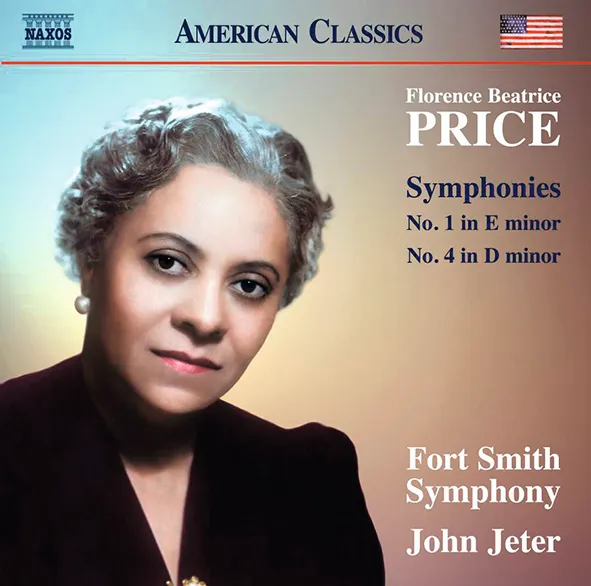
Price Symphony No. 1 in E minor; Symphony No. 4 in D minor Fort Smith Symphony/John Jeter Naxos 8.559827 69:04 mins
Interest from major US ensembles in the orchestral works of Florence Price (1887-1953) is flourishing, a mark of recognition that she sought, unsuccessfully apart from on one occasion, during her lifetime. Price was a brilliantly gifted musician whose E minor Symphony became the first orchestral work by an African-American woman to be performed by an international orchestra – the Chicago Symphony Orchestra under Frederick Stock; but despite Price’s appeal ‘to be judged on merit alone’, racism and sexism plagued her career. After her death, her art songs stayed in the repertoire and scholars studied her work, but it was only last year that a publisher, G Schirmer, acquired her catalogue.
Price wrote four mature symphonies, although one is thought to be lost; this disc from the Fort Smith Symphony and conductor John Jeter is the first part of the first ever complete recording of them. The E minor No. 1 starts on the same ground as Dvořák’s New World, but soon charts different terrain. It’s Price’s own blend of experience that speaks in the organ-like brass-band march and juba dance that replaces the usual scherzo movement – all played with rhythmic élan, beguiling colour and evident joy. If not every corner is neat, this is still the recording of the First Symphony to own. And it’s paired with the first recording of the Fourth Symphony in D minor, written in 1945 but only premiered in concert last year, by Jeter and his Arkansas musicians. From the soulful, bittersweet string melody in the opening Allegro ma non troppo to the emphatic Scherzo finale, this a rich score that winningly blends European and African American influences.
Rebecca Franks